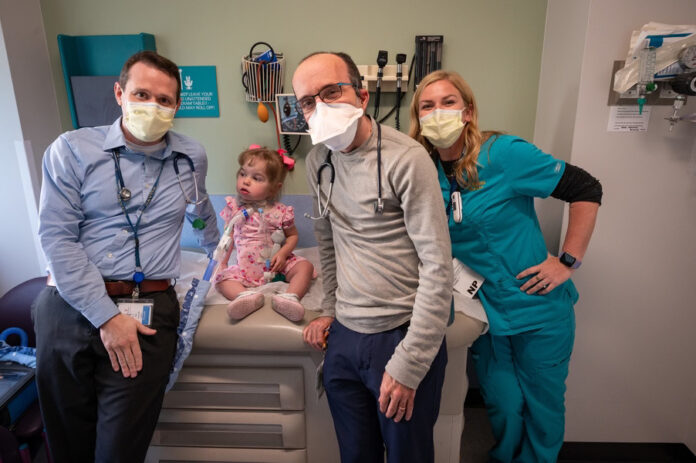The program takes a multidisciplinary approach to make the standard of care more patient-centered
By BRANDON NGUYEN — science@theaggie.org
UC Davis Health has recently developed the Pediatric Pulmonary Hypertension Program to provide a multidisciplinary approach to treating children with pulmonary hypertension, a condition that can be difficult to diagnose in children.
Dr. Brian Goudy, a pediatric intensive care physician at the UC Davis Medical Center and director of the program, described what pulmonary hypertension is.
“Pediatric pulmonary hypertension is just defined as increased pressure in the blood vessels that go to the lungs,” Goudy said. “It’s similar to if you were to have hypertension in your other blood vessels, so the blood vessels go away from the heart and toward the body, but it’s just a little bit more difficult to measure the blood pressure in the lungs the way you measure blood pressure in the body.”
It is difficult to diagnose a child with pulmonary hypertension, largely due to the numerous factors that may lead to the condition.
“The definition really is so broad that it encapsulates lots of different types of causes for that increased pressure,” Goudy said. “Most frequently the results of increased pressure in the lungs are a result from lung injury from prematurity, where many of our patients are premature infants that have chronic lung disease, which causes blood to not flow as smoothly through their lungs. The other large subset of patients that have pulmonary hypertension have congenital heart disease, meaning they were born with some sort of heart defect and in association with that heart defect, they have developed increased pressure in their lungs.”
Due to the complexity and difficulty of the condition in pediatric patients, doctor visits often required families to spend many days per month meeting with the multiple specialists involved. However, with the advent of the program, these visits have been reduced to a one-stop shop where a family can see all of the specialists in one visit.
Dr. Payam Vali, a neonatologist at the UC Davis Medical Center, spoke on the importance of a multidisciplinary team when approaching pediatric pulmonary hypertension cases.
“The reason we developed the program is again because it’s a fairly complex disease that requires a multidisciplinary approach,” Vali said. “In developing this team, we can create this niche expertise that when we identify patients that have pulmonary hypertension, we can rely on this team to provide the most up-to-date evidence in treating these patients so it’s a little bit more cohesive in the approach.”
The program is an example of advocating for a patient-centered approach. Dr. Rory Kamerman-Kretzman, a pediatric pulmonologist, further highlighted what the team hopes to achieve in the future while improving and expanding the program.
“Number one on my list would be improving the quality of life for families, and I think that what we call patient or family-centered research outcomes are increasingly recognized but still remain under-emphasized across all health conditions,” Kamerman-Kretzman said. “So I’m interested in getting more family input on how we can be more effective, as a team and then eventually, I’d like our research efforts to ramp up as well. Right now, we are a very clinically focused team, but I hope that we can contribute to the network of children’s hospitals and medical centers that are advancing the care of pediatric pulmonary hypertension.”
Written by: Brandon Nguyen — science@theaggie.org




